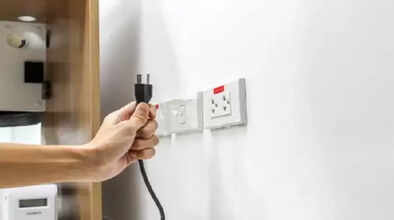Don't accidentally plug these items into your home's power plugs, they could cause an explosion.

Home power plugs and sockets should always be used with caution and care. Let's learn about the potential dangers associated with plugging them. Therefore, don't ignore any hazards.
Home electrical accidents often occur due to minor negligence, but their consequences can be serious and even fatal. Therefore, it's often recommended to plug high-voltage electrical appliances into the correct power socket to prevent damage to the plug and avoid any potential accidents. Let's learn what items should never be accidentally plugged into your home's power plugs.
Regular Plug Checks Are Necessary
First, it's important to understand that all power plugs and sockets are designed for a limited capacity. Overloading, broken wires, loose connections, and counterfeit devices can exceed these limits. According to electrical experts, regularly inspecting household appliances and plugs and using certified products is the most effective way to prevent electrical accidents.
What should not be plugged into sockets?
First, counterfeit or uncertified chargers and adapters, often from cheap brands, can cause short circuits and thermal failures. Furthermore, broken, cut, or frayed wires increase the risk of fire from direct current. Using wet hands or wet appliances is also extremely dangerous. Moisture can increase the current, leading to a short circuit and shock hazard. Overloading is also a common mistake. Plugging multiple high-wattage appliances into a single socket can overheat and melt the plug or cause a fire in the wiring.
What increases the risk?
Furthermore, dust, debris, or small metal particles entering the socket can also pose a risk of short circuits. Connecting high-wattage appliances to the common line in the kitchen, using broken socket covers or loose sockets, all increase the risk.
In what situations should you be alert?
In such a situation, it's also important to identify any unusual occurrences in the home. If a socket burns out, a fuse repeatedly blows, smoke or a flickering spark near the plug, or the plug experiences an unusual temperature, then you should immediately be alert. In such a situation, turn off the power at the main switch and call a qualified electrician for inspection.

